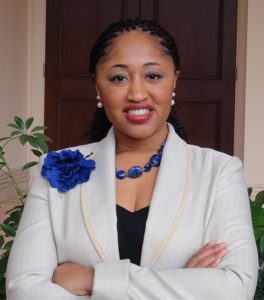Community Matters is a biweekly opinion column. The views expressed are solely the author’s.
I recently moderated a forum for the Leadership Center for Excellence (LCE) on advocacy. After years of lobbying and grassroots advocacy, I enjoy learning how others influence our elected officials and community leaders.
The panelists shared their best practices for building relationships, understanding the process, connecting with people as individuals, and coalition building.
Carlos Velasquez, past chair of the Arlington Human Rights Commission; Kim Phillip, co-founder and steering committee member of Arlington for Justice; and Edie Wilson, President of the Shirlington Civic Association, all recounted numerous personal stories about how they have advocated for different causes.
Carlos focused on the importance of listening first, and getting to know our neighbors, before we even engage in advocacy at a more traditional level. Edie stressed tenacity in her work, and having a larger vision that staff and elected officials may not yet understand. Kim articulated doing your research and while advocating with the County, we have to understand the role that staff play in the process. She also noted that while some may go to the County Board with their concerns first, one may not even need to contact the County Board unless they have exhausted other channels.
As we stress equity and engage more people in our community, it’s essential that we are transparent about who advocates, and how to do it effectively. Forums like these are an essential part of a transparent government. Some lessons from the panelists include:
Listening First: Carlos shared that listening is an important part of the advocacy process, and recommended amplifying the stories of those for whom we advocate. The personal stories of our community are powerful advocacy tools which give elected officials a valuable perspective on the issue.
Vision: Edie was clear that sometimes she had to pull others along to see her vision for Arlington or a specific project. I think this is critical and also goes along with something that Kim noted, regarding the importance of thinking long term. I believe that advocates get frustrated when they don’t see immediate results. If we want real progress, we have to understand that it won’t happen overnight.
Know the process and do your research: In my advocacy experience, I have found that being the “go to” person is particularly valuable. Elected officials, as Kim noted, have a lot on their plate. Making their work easier and being dependable, is a great position for an advocate to be in.
A key takeaway for me from the session was how simple advocacy can be, although we often try to complicate it. As the policy issues and concerns of Arlington evolve, let’s not forget to encourage more people to be involved by understanding the basics of being a successful advocate. Advocates are a critical constituency of our civic engagement process, and we should do all we can to support their voices.
Krysta Jones has lived in Arlington since 2004 and is active in local politics and civic life. This column is in no way associated with or represents any person, government, organization or body — except Krysta herself.


